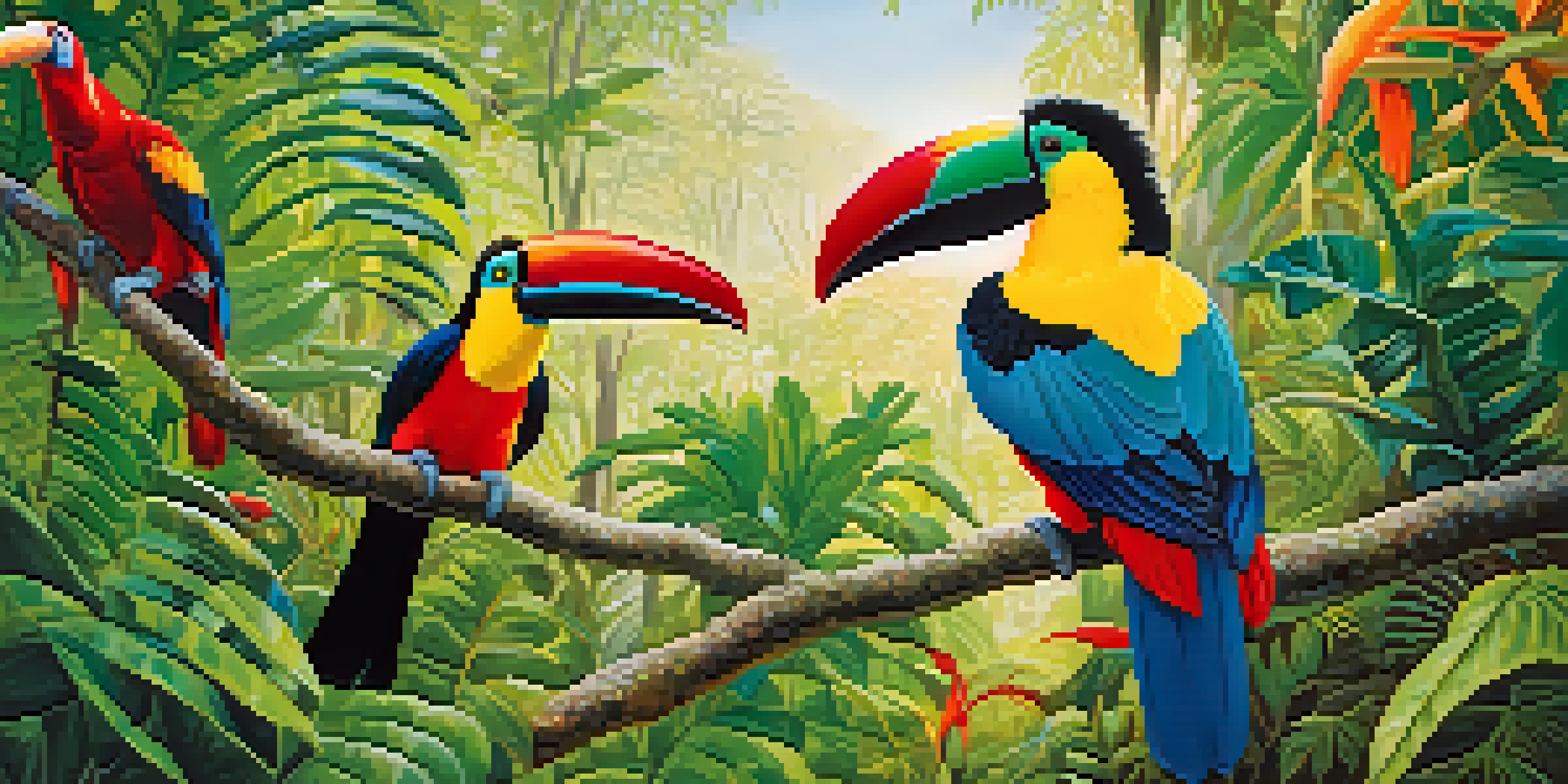Birdwatching Tours: Promoting Conservation in Brazil

The Rise of Birdwatching as a Popular Activity
Birdwatching has grown tremendously in popularity over the past few decades, attracting both casual observers and serious enthusiasts. With its rich biodiversity, Brazil stands out as a prime location for birdwatchers, offering stunning landscapes and unique species. This rise in interest has led to an increased demand for guided birdwatching tours across the country, providing opportunities for locals and tourists alike to connect with nature.
Understanding Brazil's Rich Avian Diversity
Brazil is home to over 1,800 bird species, making it one of the most biodiverse countries in the world. From the vibrant toucans of the Amazon to the majestic harpy eagle in the Atlantic Forest, the variety is astounding. This diversity not only captivates birdwatchers but also highlights the importance of conservation efforts to protect these incredible creatures and their habitats.
Birdwatching Boosts Local Economies
Guided birdwatching tours create jobs and foster community pride by employing local guides who know the region's ecosystems.
How Birdwatching Tours Support Local Communities
Birdwatching tours often rely on local guides who have an intimate knowledge of the region's ecosystems. By hiring local guides, these tours create jobs and stimulate the local economy, fostering a sense of pride and stewardship in the community. This not only enhances the visitor experience but also strengthens the bond between locals and their natural environment.
Conservation Awareness Through Birdwatching
Birdwatching tours serve as a platform for raising awareness about conservation issues. Many tour guides share stories about the ecological challenges faced by local birds, such as habitat destruction and climate change. This education can inspire participants to take action, whether through advocacy, volunteering, or supporting conservation organizations.
Conservation Awareness is Key
Birdwatching serves as a platform to educate participants about ecological challenges, inspiring action for conservation efforts.
Sustainable Practices in Birdwatching Tours
To protect the delicate ecosystems they explore, many birdwatching tours adopt sustainable practices. These can include minimizing disturbance to wildlife, using eco-friendly transportation, and adhering to responsible viewing guidelines. Such practices not only ensure a positive experience for birdwatchers but also help preserve the natural habitats for generations to come.
The Role of Technology in Birdwatching
Technology has transformed the birdwatching experience, making it easier than ever to identify and learn about various species. Mobile apps and online platforms enable birdwatchers to log sightings, access identification guides, and connect with fellow enthusiasts. This tech-savvy approach fosters a community of informed birdwatchers who can advocate for conservation.
Sustainable Practices Protect Nature
Many birdwatching tours implement eco-friendly practices to minimize disturbance to wildlife and preserve natural habitats for future generations.
Partnerships for Conservation Success
Many birdwatching tours collaborate with conservation organizations to bolster their impact. These partnerships can lead to initiatives like habitat restoration projects or educational programs in local schools. By working together, they can create a more significant impact on protecting Brazil's avian diversity and promote a culture of conservation.
The Future of Birdwatching Tours in Brazil
As awareness of environmental issues grows, the future of birdwatching tours in Brazil looks promising. With an increasing number of people eager to explore the beauty of nature and support conservation, these tours are poised to expand. By continuing to promote sustainable practices and education, birdwatching can play a crucial role in protecting Brazil's incredible biodiversity for years to come.